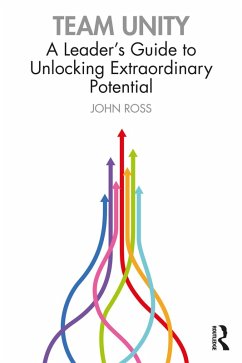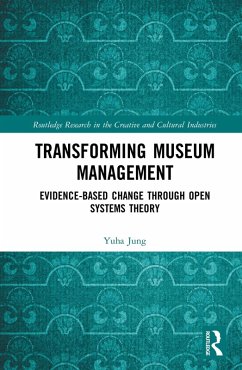
Managing Conflict in Organizations (eBook, ePUB)
Versandkostenfrei!
Sofort per Download lieferbar
36,95 €
inkl. MwSt.
Weitere Ausgaben:

PAYBACK Punkte
18 °P sammeln!
Managing Conflict in Organizations introduces the origins, forms, benefits, and consequences of organizational conflict to students and practitioners and teaches how best to manage conflict to achieve productive outcomes. Conflict has benefits: it may lead to solutions to problems, creativity, and innovation. In contrast, little or no conflict in organizations may lead to stagnation, poor decisions, and ineffectiveness.This book is a vigorous analysis of the rational application of conflict theory in organizations for organizational behavior students, as well as practitioners looking to practi...
Managing Conflict in Organizations introduces the origins, forms, benefits, and consequences of organizational conflict to students and practitioners and teaches how best to manage conflict to achieve productive outcomes. Conflict has benefits: it may lead to solutions to problems, creativity, and innovation. In contrast, little or no conflict in organizations may lead to stagnation, poor decisions, and ineffectiveness.
This book is a vigorous analysis of the rational application of conflict theory in organizations for organizational behavior students, as well as practitioners looking to practice constructive conflict management in their work. This fifth edition has been thoroughly updated to reflect the latest research in the field and explains the effect that research has on practice, with an expanded range of practical examples and cases.
It covers emergent topics such as:
This text is a valuable resource for students, instructors, and researchers in human resource management and organizational behavior, and a practical handbook for practitioners that manage (or manage upward) their colleagues.
This book is a vigorous analysis of the rational application of conflict theory in organizations for organizational behavior students, as well as practitioners looking to practice constructive conflict management in their work. This fifth edition has been thoroughly updated to reflect the latest research in the field and explains the effect that research has on practice, with an expanded range of practical examples and cases.
It covers emergent topics such as:
- Differentials in conflict management styles across generations
- Technology and its effect on conflict style changes
- Cross-cultural studies and diversity
This text is a valuable resource for students, instructors, and researchers in human resource management and organizational behavior, and a practical handbook for practitioners that manage (or manage upward) their colleagues.
Dieser Download kann aus rechtlichen Gründen nur mit Rechnungsadresse in A, B, BG, CY, CZ, D, DK, EW, E, FIN, F, GR, HR, H, IRL, I, LT, L, LR, M, NL, PL, P, R, S, SLO, SK ausgeliefert werden.













